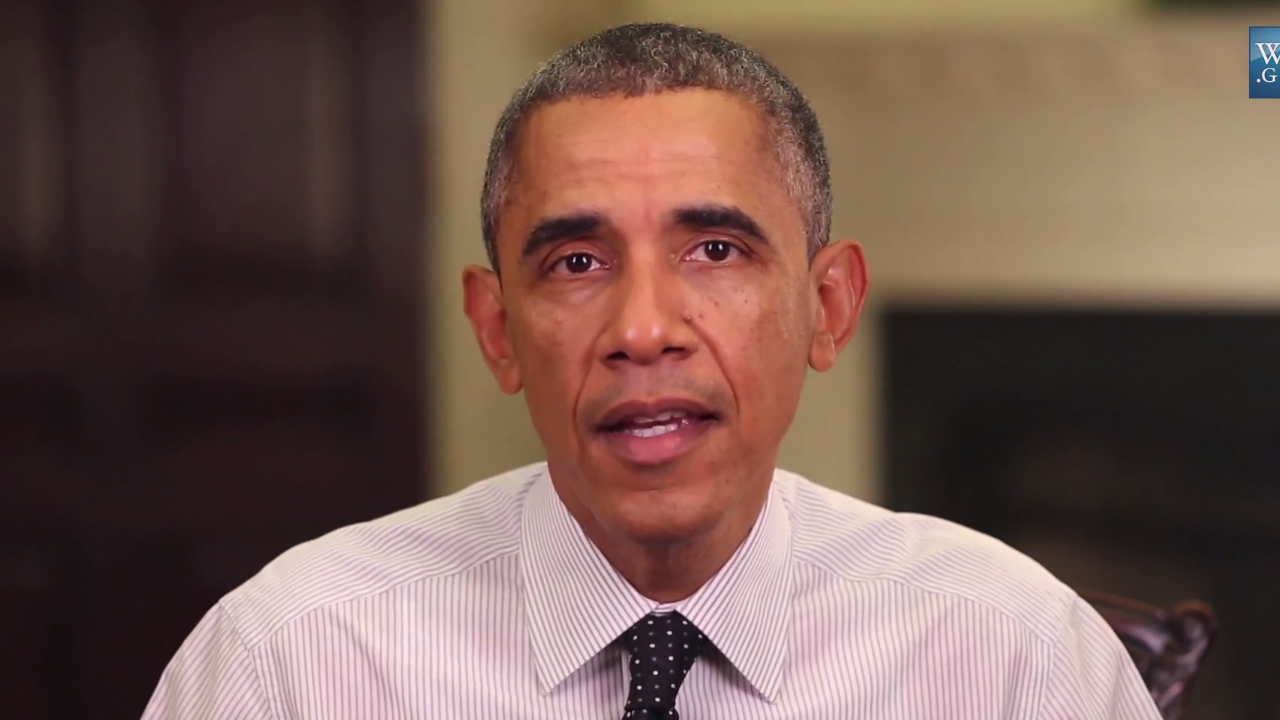He may have slipped in polls recently, but President Obama is still popular within the internet community, having just joined the fight for net neutrality. In a video and two-page statement released by the White House, Obama urged the FCC to support an open internet that treats all data and providers on the internet equally.
“Ever since the Internet was created, it’s been organized around basic principles of openness, fairness and freedom,” said the president in the two-minute video. “There are no gatekeepers deciding which sites you get to access. There are no toll roads on the information superhighway. Abandoning these principals would threaten to end the Internet as we know it.”
Obama called for the FCC to “reclassify broadband under Title II of the Telecommunications Act,” making it a public utility like water or electricity. “I believe the FCC should create a new set of rules protecting net neutrality and ensuring that neither the cable company nor the phone company will be able to act as a gatekeeper, restricting what you can do or see online,” read his statement. He proposed a plan to the FCC requesting that no legal content be blocked, no ISPs be intentionally slowed down, and to offer no special treatment to providers or ISPs.
Tech and media academic Tim Wu, who coined the term back in 2003, told the Verge that the move was “bold and courageous and, in some ways, just obvious.” “Sometimes,” he explained, “it takes someone who’s not deeply embedded in the game to say this is the obvious thing to do to.”
The question on everyone’s mind, now, is: will the FCC listen? Wu opines:
Do I think the FCC will do what he says? The ball’s in their court in a way it hasn’t been before. I certainly think it stands a chance. He’s the boss; he’s the head of the Democratic Party and the President of the United States. His ideas hold a lot of weight. Obviously, [the FCC] is not going to just ignore this; they have more political cover to do it. I don’t think it’s the Chairman’s preference, but knowing that he’ll have the White House… They may find themselves very isolated. Sometimes, you have to pick a side or get run over.
What’s the point of being in the middle if you’re the FCC at this point, unless you really think it’s better in some way? If they stay in the middle, they’re kind of naked right now — there’s no one there with them. It’s not like Congress is gonna help out. Congress is going to be against any version of the net neutrality rule, the tech companies are against any compromise. Sometimes, the middle can end up being a very dangerous place.
The only concern I have is that there’s too much chaos. My main concern is delay
The FCC has already issued a response, though it doesn’t betray any position aside from something to the effect of, “Thanks boss, we’re working on it.” Writes FCC Chairman Tom Wheeler:
Title II brings with it policy issues that run the gamut from privacy to universal service to the ability of federal agencies to protect consumers, as well as legal issues ranging from the ability of Title II to cover mobile services to the concept of applying forbearance on services under Title II.
I am grateful for the input of the President and look forward to continuing to receive input from all stakeholders, including the public, members of Congress of both parties, including the leadership of the Senate and House committees, and my fellow commissioners. Ten years have passed since the Commission started down the road towards enforceable Open Internet rules. We must take the time to get the job done correctly, once and for all, in order to successfully protect consumers and innovators online.
(Read the full statement here).
In the meantime, Sen. Ted Cruz (R-Tex.) issued the least constructive response of the day with a completely nonsensical diversion:
"Net Neutrality" is Obamacare for the Internet; the Internet should not operate at the speed of government.
— Senator Ted Cruz (@SenTedCruz) November 10, 2014
Some things will never change. Let’s hope the open internet is one of them.
(Photo: The White House)


